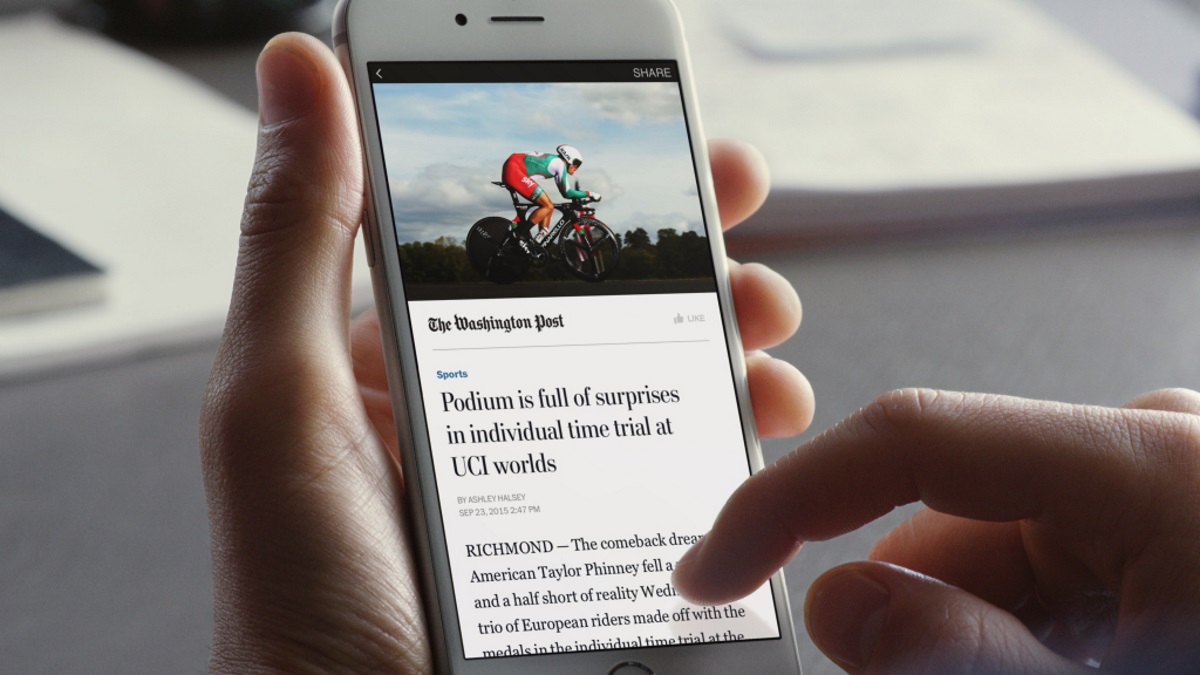Publishers protest Facebook decision to label news articles “political content”
- Tuesday, June 12th, 2018
- Share this article:
 Seven trade groups, representing over 200 media publishers and broadcast organisations from more than 120 countries, have banded together to criticise Facebook for its decision to categorise promoted news articles as political content.
Seven trade groups, representing over 200 media publishers and broadcast organisations from more than 120 countries, have banded together to criticise Facebook for its decision to categorise promoted news articles as political content.
The organisations, which include publishers like the BBC, the New York Times and 21st Century Fox, have sent an open letter to Facebook CEO Mark Zuckerberg, urging him to reconsider the new policy, which places ads publishers buy to promote political articles in a database alongside the ad information of political candidates and issue-based organisations.
“We are concerned with Facebooks inclusion of news content in its new policies to label all political and issue-based advertising, and to create a searchable archive for all such content,” says the letter. “It is from our view of highest important that the framework, which is currently being developed by Facebook, recognises and values high-quality journalism separately and apart from political or issue-based advocacy found across the platform.”
According to the new rules proposed by Facebook, any ads promoting political content will be placed in a database that includes the identities of who has paid for the ads and the demographics of who has been targeted. The data, which will be stored for up to seven years, will include news articles that cover political issues or elections under the current plans.
“We see your policy as another step toward furthering a false and dangerous narrative that blurs the lines between real reporting from the professional media and propaganda,” continues the letter. “Marketing our products, or subscriptions to our products, is not separate from our journalism or from press freedom. Our marketing must reflect [emphasis theirs] our journalism and tell the story of what it takes to produce credible, source-reported, quality news. We cannot and will not engage in any process that conflates legitimate newsgathering with politics or advocacy.”
The new guidelines were introduced last month by Facebook after months of criticism surrounding fake news and alleged interference into elections by Russian operatives using the site.
“We also recognise that news coverage of elections and important issues is distinct from advocacy or electoral ads, even if those news stories receive paid distribution on Facebook,” said Rob Leathern, director of product management at Facebook, in a post when the policy first came into effect. “Were working closely with news partners and are committed to updating the archive to help differentiate between news and non-news content.”
Despite promises that it would work with publishers to distinguish legitimate journalism from political advocacy, so far Facebook has offered no sign of how this will be achieved. David Chavern, CEO of the News Media Alliance and one of the biggest critics of the new policy, has proposed a white list of mainstream news organisations who would be exempt from the new policy, while the open letter includes a number of recommendations on how Facebook could identify news outlets that should be exempted.
With tensions between publishers and Facebook higher than ever, questions remain over how the social network will tackle this problem, and whether it can find a balance that will make everyone happy.
















